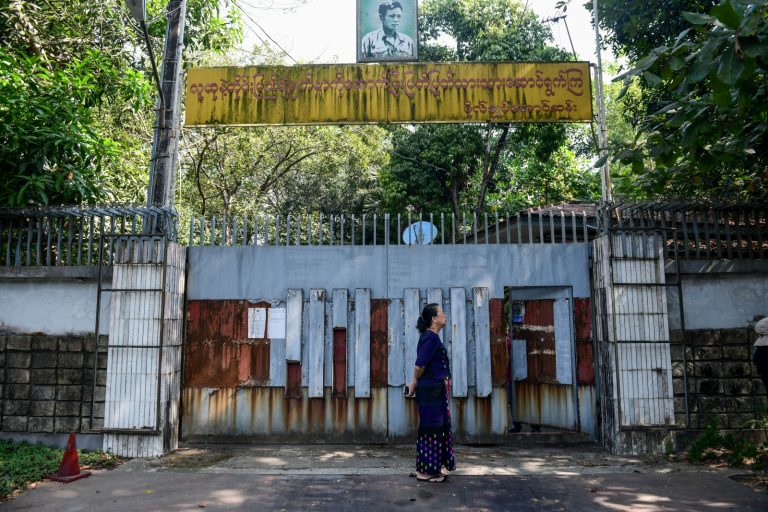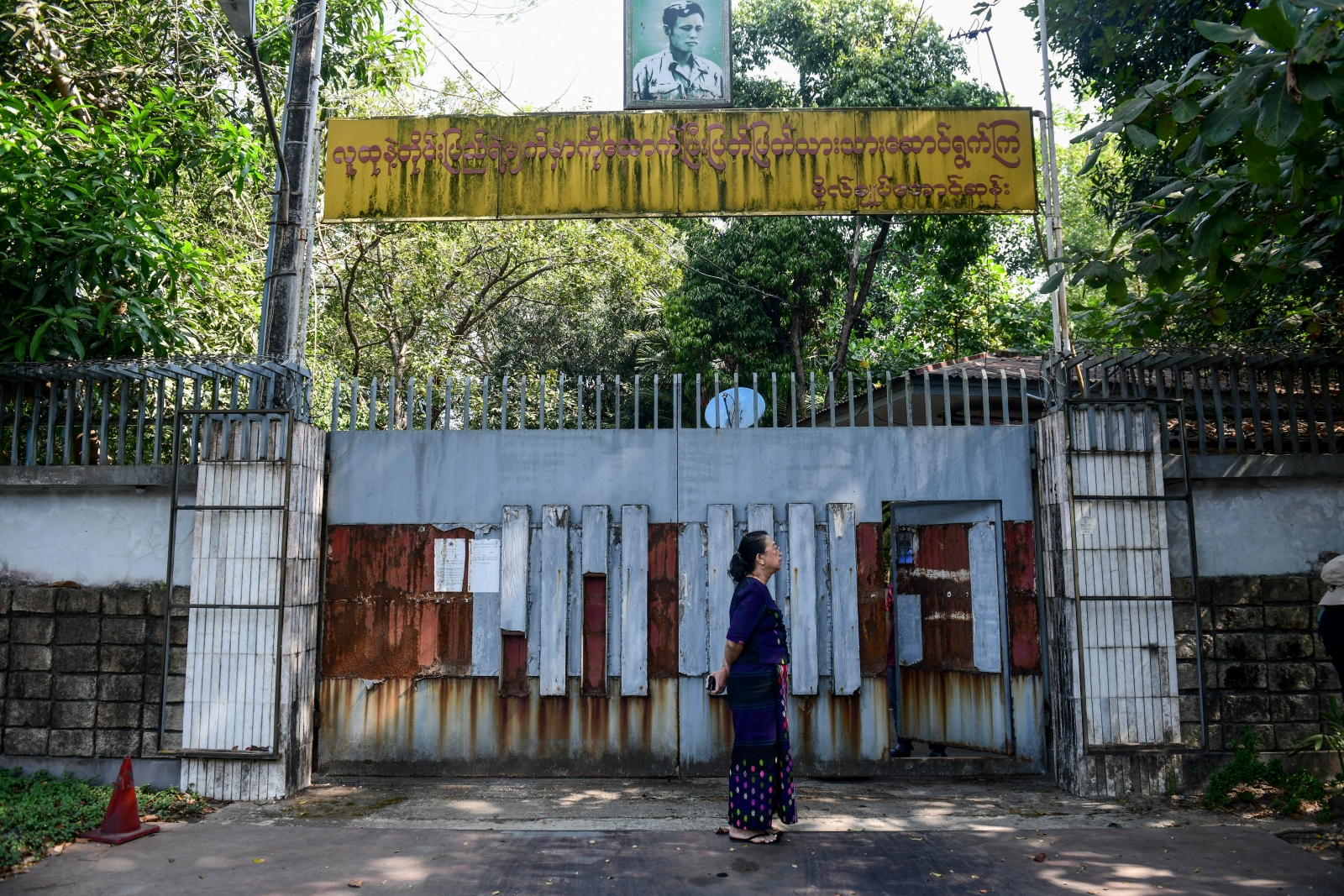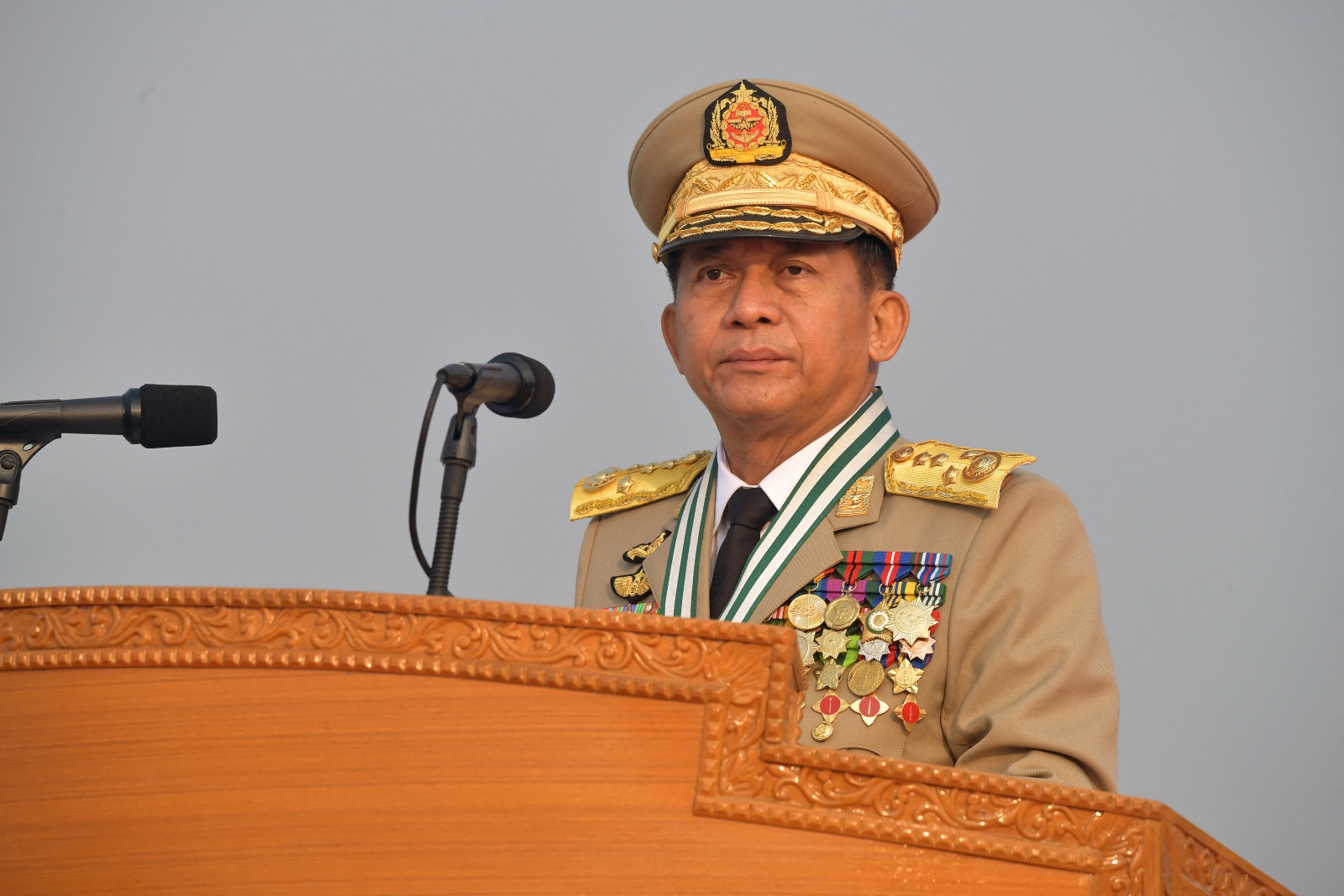Cartoonists celebrated the end of censorship in 2012 with caricatures mocking previously off-limits government leaders. Now they’re turning their attention to Daw Aung San Suu Kyi.
Maung Maung Fountain, a prominent cartoonist, may well have sketched a little piece of history. His drawing earlier this month of two boys complaining to their bossy older sister is perhaps the first example of a satirical cartoon lampooning Daw Aung San Suu Kyi.
Critiques of Daw Aung San Suu Kyi’s authoritarian leadership style, which stands in contrast to her image as a democracy icon, are rare in Myanmar. But that is set to change now that her National League for Democracy is due to assume power in the coming weeks.
“Sister,” says one of the boys in the cartoon as he addresses an older girl clutching a tiara, “you told us what you want, but when we said what we wanted you got angry.”
The boys, who are wearing the traditional gaung baung worn by men on formal occasions and at parliamentary sittings, are a clear nod to newly elected NLD lawmakers, whom Daw Aung San Suu Kyi recently warned not to covet ministerial roles. However, the NLD leader has seen no problem with making her presidential ambitions clear despite being barred from the top job by the constitution.
Free expression may be a cornerstone of democracy, but some of Daw Aung San Suu Kyi’s fans are unwilling to tolerate mockery of their idol. “This one got me in trouble,” said Maung Maung Fountain in a recent interview. The cartoon, first published in The Irrawaddy magazine’s Myanmar edition, sparked an angry response from NLD supporters on Facebook.
Support more independent journalism like this. Sign up to be a Frontier member.
“They said ‘you can’t joke about our Lady, our leader, our lovely mother, she is very old, she is tired,’ ” said the cartoonist, whose real name is U Tha Htoo. “If my mother were going to be president, I would also draw my mother, because I am a cartoonist.”
Ko Nyan Win Maw, another cartoonist, pencils satires in a small studio next to his bedroom where the amateur cartoonist recently sketched his most famous cartoon yet. It’s a riposte aimed at the NLD supporters who attacked Maung Maung Fountain’s cartoon.
“We have a right to satirise the NLD,” said Ko Nyan Win Maw. In his sketch a peacock, the emblem on the NLD’s flag, is infuriated by a single fountain pen stuck in its bottom. Puffs of smoke fume from the bird’s head. “You’ll get used to it soon,” says a depressed-looking lion, symbolising the flag of the military-backed Union Solidarity and Development Party. The lion’s bottom has been stuck with so many fountain pens that it is red raw.
Ko Nyan Win Maw’s family is pro-NLD and he voted for the party in November’s general election. But he finds the idea that the party’s leader should be beyond criticism as ridiculous. “Some people are just not familiar with the idea of free expression,” he said. “They are very sensitive.”
Daw Aung San Suu Kyi has been targeted in cartoons before, not by democratically-minded satirists, but in hateful caricatures published in state media during the junta era that depicted her as a toothless witch and a puppet for foreign interests.
Pre-publication censorship during the junta era ensured that cartoonists never had the opportunity to direct their wit at military rulers. After pre-publication censorship was lifted in 2012, a torrent of cartoons mocking President U Thein Sein’s government and the military rulers who installed him have appeared in magazines, newspapers and online.
Making fun of those in power remains risky. In March, the Myanmar Times issued a grovelling apology to the Tatmadaw after it complained about a cartoon focussing on land grabs by the military.
In the cartoon a man reading a newspaper says to his wife that the army has “taken the hills” during an offensive against ethnic rebels. “Aren’t they satisfied with taking the rice fields?” the wife replies.
Zarganar, a well-loved comedian known for his anti-junta humour, said he has started incorporating jokes about the NLD in his routine in recent months, albeit ones that are less direct than Maung Maung Fountain’s cartoon. In one gag, Zarganar quips about a tendency by many people to view Daw Aung San Suu Kyi as a god who can solve all of the country’s problems.
Zarganar expects the new NLD government to be much more relaxed about being the target of satire than the outgoing military-backed government. “I have met Daw Aung San Suu Kyi and U Win Htein many times,” he said, referring to one of the party leader’s senior officials. “We can make jokes about them, they are not angry, I think they are very tolerant of criticism and satire.”







